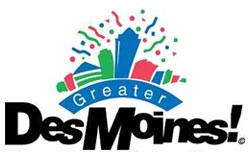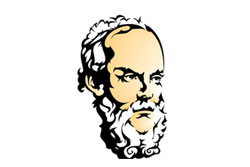We were very honored and humbled, at Quester, to have won one of the industry\’s most prestigious awards. The EXPLOR award isn\’t just about new technology and new methods in research, it\’s about the application of these new ideas and how they translate to actually making a difference in the marketplace. We\’re most honored for this award because we\’re grounded in the fact that our job, as marketing researchers, is to ultimately help companies drive business by driving behavior. That comes from understanding consumers at an intimate level, and that\’s why we\’re here.
It\’s gratifying to us to get to work with really smart, strategic researchers – the kind who think big and push us to be creative with our tools and our applications. The client with whom we share this award is exactly that kind of partner, and we thank them for that. Special recognition also goes to Hannah Collins at Quester, the Research Manager, and Eric Henderson and Brady Bogue, who handled the technical aspects of the project. These very talented people make some very cool things happen.
Part of what\’s exciting about this, for us, is the sense of validation. We know we do things differently at Quester; and we\’re perfectly fine with that. Our challenge has been that it\’s not always easy to communicate what that means, especially to busy researchers who have roughly 4.2 seconds available to internalize what we do and how it can help elevate their research.
So, when introducing Quester, we\’ve traditionally talked a lot about our technology – the artificial intelligence moderator and the proprietary analysis software that helps us digest natural language from hundreds or thousands of people at a time. These things are great and important and flashy – but the secret is this: What truly makes Quester different is the same thing that made us different when I started here 17 years ago. We are driven by – and really good at – listening to people.
It\’s that simple. Everything we do stems from that. Every technique we employ, every piece of software we develop, comes down to that key principle, listening to people. We\’re constantly asking: “How can we get better, at the listening? How can we get them to tell us more? How can we talk to more of them? How can we advocate for them and represent their stories? How can we effectively blend in smart quantitative to build even more credibility around what they\’re telling us?”
And, “how can we help our clients drive their business by truly understanding people?”
In a nutshell, that was the driver behind the work we did for this client. Where typical segmentation work involves a battery of attributes, with underlying patterns (hopefully) found through highly complex, difficult to fully understand, statistics, ours involves language: relying on consumers to tell us about their perspectives, in their own words. Doing this, segmenting people by the language people used to express their perceptions of Black Friday, created something truly differentiated for our client.
Rather than ask a battery of questions, we engaged in conversations. Full, in depth conversations (online, AI moderated), with 250 people. We asked them to talk about their Black Friday shopping, their feelings, their experiences, their motivations – and we dove deep. We wove in behavioral questions about the details of their Black Friday shopping, both qualitative and quantitative, allowing them to easily engage and represent the entire experience.
Then we used the language to establish the patterns. Key ideas in how people described their personal experience with Black Friday became variables that we noted the presence of, cut by, and further explored for additional patterns. And once the patterns emerged from their natural language, we already had all of the detail at our fingertips to explain them and bring them to life – based on the full story they gave us, not the close-ended components we gave them to choose from, based on our previously decided notions of their experience.
For example – It may not be surprising to learn about people who are price-driven on Black Friday – one piece of the segments we identified. But, digging into the language of this group exposed a sub-group of people who actually feel “forced” to shop, because of the low prices only offered on Black Friday – whether they want to or not. They resent things, like being made to miss their family Thanksgiving dinners, due to earlier store openings, in order to give their children a proper Christmas. But they truly feel they have no choice. They feel “captive.” These findings, built on the nuance in the language, helped define the segment differentiators.
Once our segments were identified and explored, they were sized, vetted, and fully examined – quantitatively – for additional important attributes and behaviors to pinpoint specifically where and how to reach them, and specifically what to say that would resonate with each unique group (again, using their own language, which they gave us). The research team made recommendations for how to most effectively communicate to the key segments. This ultimately resulted in some serious marketing – and serious results – for the client team.
I do want to take a moment to be very clear about what this process is NOT.
Mostly because I think researchers have a set image of what large-scale online research has to be. I was at the Corporate Researchers Conference a few weeks ago, and one of the speakers was talking about working really hard to build up the research function in the organization. In discussing the litany of things that needed to be done, it was said (with, it should be noted, clear disdain), “I had to code open ends.” A collective chuckle of horror (yes, that\’s a thing) arose from the assembled crowd of researchers. And listen, I get it – we\’ve seen lots of open ends from traditional surveys, and sometimes they\’re garbage. It\’s not surprising that busy people don\’t want to bother with them. And maybe that\’s why it\’s been commonly accepted that credible Research needs to be in the form of a data point. Supported maybe with some focus groups, sure. But mostly data points.
So our simple premise, what we can officially call our award winning premise now, is that if you ask people (online, just like you would in person) – with caveats of course, that you need to do it very well, and have a complete, fully explored conversation – they will tell you what you need to know. Let them explain their thoughts, and feelings, and experiences in their own words. Set the stage for them to tell you as much as possible, and make it easy to do that. Make it flow, and make it make sense – if it needs to be a quant question, ask it that way; if it makes sense as qualitative, give them a topic-oriented way to tell you about it – build it to engage them, and really explore their world.
And they will tell you what you need to know.
And yes, absolutely – the onus is then on the researcher to examine all of this information. It probably isn\’t the easy way, but things that are worth it rarely are easy. And believe it or not, if you have the right tools and discipline for it, it isn\’t really such a daunting task, and is, in fact, a fascinating one. Patterns emerge in natural language, stories shed light, and nuances explain things in a way you would have never understood. Analytic epiphanies are not only born, but are fully fleshed out with the collective detail.
And then you make it bulletproof.
Language becomes data, quant data points are examined, full rigor in place. The numbers are used to guide, to confirm, and to provide reliability.
But the stories are there, underneath it all. They are the foundation on which the findings are lovingly constructed. And the result is comprehensive and powerful.
There are lots of really great ways to get insights. But we still think listening, very closely, to understand people holds the key to true Research Epiphanies. Our goal is to make sure People stay in research, not just data points. That\’s the core of what Quester is about. And while it\’s exciting to be recognized for one of the ways we applied that, it\’s even more exciting to be a part of this every day – in new designs, across new products. With all of our new tools and technologies, it\’s still that old school piece of Quester heritage that makes us who we are.
And yes, we know it\’s different. And we\’re perfectly fine with that.

